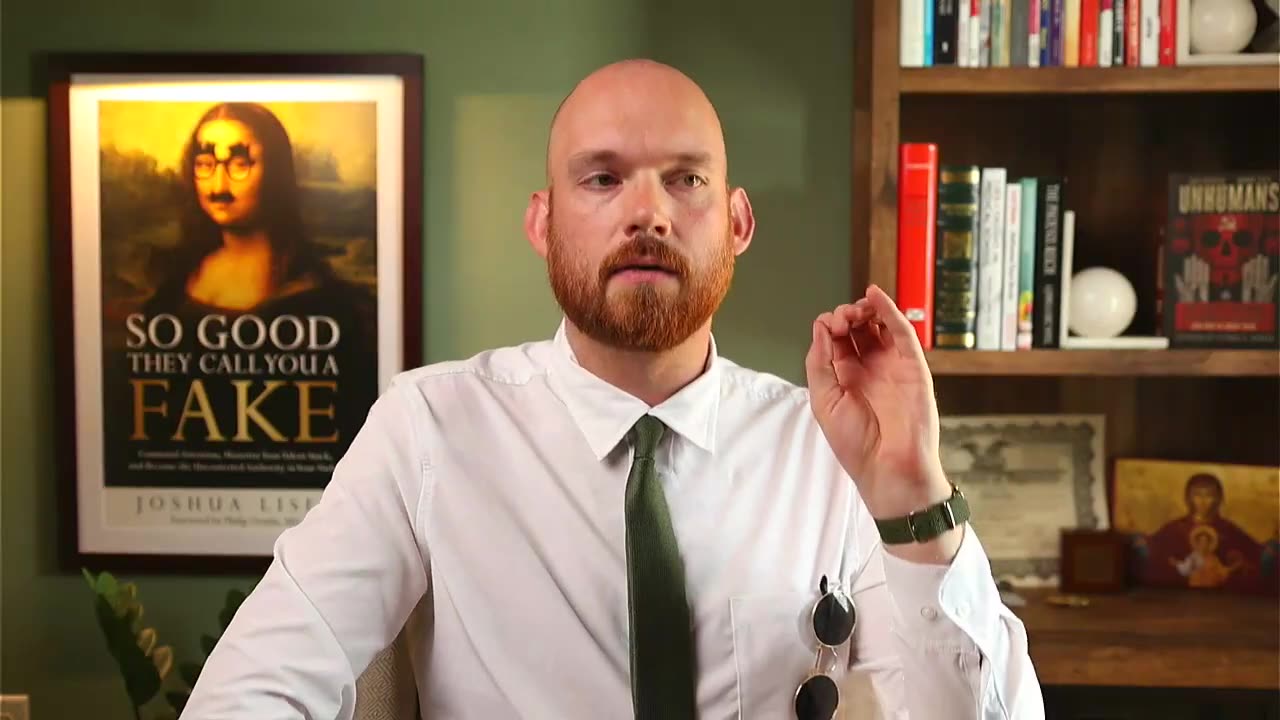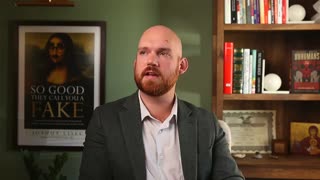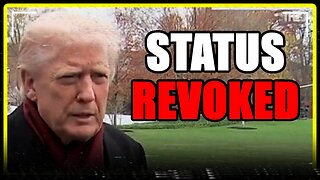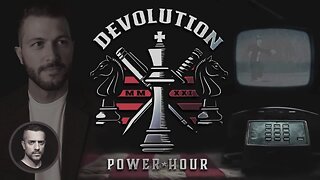Premium Only Content

Spotting Source Bias ft. Israel, Iran, & Immigration — Daily Persuasion with Joshua Lisec Ep. 257
Would you like to write a persuasive BOOK? One that changes minds and influencers behavior for years to come? Start with a GOLDEN book idea. Let NEW YORK TIMES bestselling author Joshua Lisec teach you: https://lisecghostwriting.com/golden
ABOUT TODAY'S EPISODE:
What if your political opinions aren’t really yours—but the result of invisible source bias you’ve never questioned?
In Episode 257 of Daily Persuasion, titled “Spotting Source Bias ft. Israel, Iran, & Immigration,” bestselling author and literary ghostwriter Joshua Lisec challenges viewers to examine the narratives they're consuming. With the headlines dominated by Israel and Iran, uranium enrichment, and immigration law, it’s never been more urgent to ask: Where did this information come from—and who benefits from me believing it?
Lisec—author of 100+ nonfiction books and co-author of the explosive Bulletproof—uses his signature persuasion psychology framework to break down the three dominant camps of opinion within the Trump-era right. Each one, he argues, is shaped not by logic alone but by deeply ingrained source bias—ethnic, spiritual, political, and ideological.
Whether you're following the Israel news, Iran news, or the rising conflict over immigration law, Lisec shows how the real battle isn’t just out there—it’s in your own mind. This episode of Daily Persuasion dissects the Carlson Cruz interview clash, the role of anti-Zionism, and the ways different factions—including Groypers, Nick Fuentes supporters, and populist-nationalists—interpret these global events in radically different ways.
In this episode, you’ll discover:
• How source bias determines what you believe about Trump news, Trump Iran, and U.S. foreign policy
• What Tucker Carlson and Ted Cruz’s viral exchange teaches us about narrative framing and persuasion psychology
• Why some groups see Iran as a sovereign nation and others see it as an “occupying regime” over the Persian people
• The difference between anti-Zionism and anti-Semitism—and why it matters in public debate
• How Groypers, evangelicals, and American nationalists interpret the Israel and Iran crisis through different identity filters
Lisec also tackles the rise of AI-generated propaganda coming from the global South, the growing influence of anti-Zionism among young social media users, and the uncomfortable truth that no news is truly “unbiased.” Whether you're hearing from Reuters, AP, or a viral thread, the question is the same: What is the source—and what is their bias?
Lisec doesn’t just analyze the news. He equips you with persuasion techniques to identify and counteract manipulation in real time. From examples of persuasion in advertising to techniques of persuasion in writing, this episode is packed with tools for cutting through noise and reclaiming your independent judgment.
You’ll even hear Lisec’s reflections on ICE, mass immigration, and why he believes “Springfield, Ohio matters more than Tel Aviv” in an America First framework. It’s a hard-hitting, no-holds-barred look at immigration law, border security, and national sovereignty—topics most media outlets tiptoe around.
Featured in this episode:
• Daily Persuasion with Joshua Lisec on source bias
• The Israel and Iran conflict decoded through identity-based worldviews
• The strategic difference between anti-Zionists and Jew-neutral nationalists
• Why uranium enrichment in Iran triggers different fears for different groups
• Who the real spokespeople are for each worldview: from Mike Huckabee to JD Vance to Nick Fuentes
• What persuasion techniques will help you stay above the manipulation—no matter which side you're on
Whether you're trying to figure out how to persuade someone to do something, untangle persuasion examples in media, or simply want clarity on today’s most complex global conflicts, Episode 257 will give you the tools, language, and insight to stand firm—and think clearly.
This is Daily Persuasion. And this is how you beat bias—starting with your own.
-
 21:34
21:34
Daily Persuasion with Joshua Lisec
10 days agoTrump's H-1B Debacle ft Laura Ingraham, Amy Acton, Stephen Miller, Vivek, Mamdani & Mangione—Ep. 335
321 -
 9:46
9:46
MattMorseTV
14 hours ago $16.18 earnedTrump just SHUT DOWN a $287,000,000 FRAUD RING.
17.9K80 -
 15:48
15:48
GritsGG
16 hours agoWinning a Rare Solos Prison End Game on Warzone!
13.3K1 -
 11:37
11:37
The Pascal Show
16 hours ago $3.68 earnedTHEY WANT TO END HER?! Candace Owens Claims French President & First Lady Put A H*t Out On Her?!
11.7K15 -
 LIVE
LIVE
Lofi Girl
2 years agoSynthwave Radio 🌌 - beats to chill/game to
502 watching -
 24:30
24:30
DeVory Darkins
17 hours agoMarjorie Taylor Greene RESIGNS as Minnesota dealt MAJOR BLOW after fraud scheme exposed
78.7K125 -
 2:19:48
2:19:48
Badlands Media
1 day agoDevolution Power Hour Ep. 409: Panic in the Narrative — Epstein, Israel, and the Manufactured Meltdowns
172K62 -
 1:52:38
1:52:38
Man in America
14 hours agoCommunists VS Zionists & the Collapse of the American Empire w/ Michael Yon
78.9K67 -
 4:09:34
4:09:34
Akademiks
9 hours agoSheck Wes exposes Fake Industry. Future Not supportin his mans? D4VD had help w disposing his ex?
46.9K3 -
 6:43:43
6:43:43
SpartakusLIVE
13 hours agoTeam BUNGULATORS || From HUGE WZ DUBS to TOXIC ARC BETRAYALS
119K3